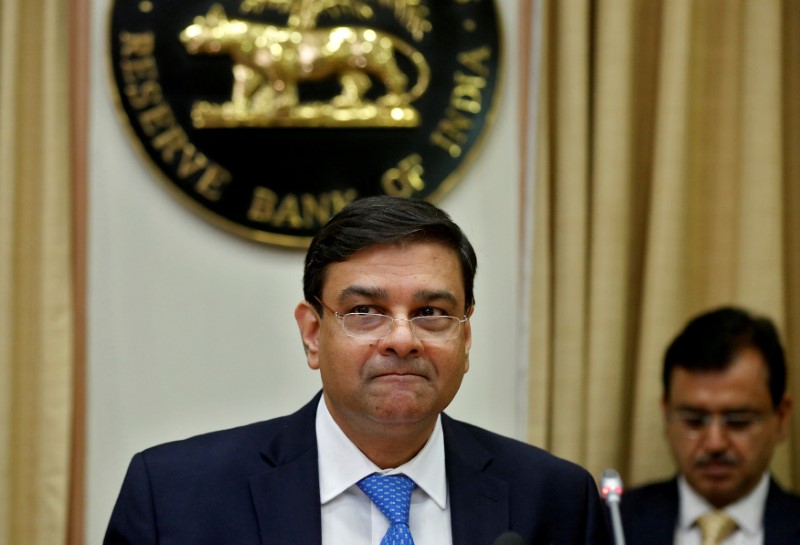By Devidutta Tripathy and Arnab Paul
MUMBAI/BENGALURU (Reuters) - India's move to strengthen the hand of its central bank will help it push reluctant lenders toward writedowns and errant borrowers into insolvency, bankers said, but the country is far from drawing a line under its $150 billion of sour debts.
India's bad loan problem is choking off new credit and dampening economic growth, and the government of Prime Minister Narendra Modi knows it needs to act.
Friday's changes to legislation governing India's banks - the most significant since the passage of bankruptcy reforms last year - authorize the Reserve Bank of India (RBI) to push more lenders to start insolvency proceedings.
The RBI, meanwhile, lowered the number of creditors who need to agree for a decision to be reached on a loan.
That in itself is a major step in a system where large numbers of lenders are behind a single loan - syndicates of 20 or even 30 lenders are not infrequent in India - and matters often end in deadlock when things go wrong.
But while bankers and industry officials said the moves would help prevent smaller lenders holding an entire syndicate hostage - for them a single writedown can be a significant blow - bankers and analysts labeled Friday's moves as incremental.
The changes did not do enough to resolve the complex insolvency process or a much-needed bank recapitalization, they said.
"The latest move is not a silver bullet, but it's better than nothing," said Varun Khandelwal, managing director, Bullero Capital.
"Its primary benefit will be to break log-jams in the Joint Lender Forums where sometimes consensus could be not reached due to a few members being unwilling to take a hit on their balance sheets," he added.
The bulk of India's problem debt is with state-run banks, where chief executives do not typically serve for beyond three years. As civil servants, some fear that bad decisions will come back to haunt them - cases of former bank heads being arrested over loan defaults spark fear - and so fail to move at all.
The changes ensure the RBI can offer cover.
"The good part is that now you cannot blame a bank managing director, or executive director for a (haircut) decision taken during his tenure," said a senior state-run bank official.
"He can now say 'I did that because RBI told me to'."
Loans to sectors like infrastructure, power, iron and steel account for the biggest share of non-performing assets in India. Struggling projects and weaker prices are among the factors that have curtailed loan repayments in these sectors.
Some will recover but others will not, making the proposed changes key.
MIND THE (FUNDING) GAP
Several financial sector executives said they had expected more after hopes built up in the market ahead of the announcement, with rumors even of a so-called bad bank to absorb toxic loans as had been mooted by some top advisers and officials.
India's Nifty Bank Index (NSEBANK) has surged this year and touched a lifetime high on Friday, before pulling back slightly after the government's changes were announced.
Despite the disappointment, some hoped the new measures would help trigger action from banks that have long dragged their feet, even if questions remained over the RBI's new powers and whether it was better equipped to tackle bad debt than commercial banks.
"At the end of the day, the RBI will name some retired bankers to these oversight committees, but will they give them actual powers?" said one senior banking sector lawyer.
Bigger challenges remain, including ensuring a newly minted bankruptcy code can function - it is caught up in red tape and a judicial backlog - and re-capitalizing the country's 20-plus state-run lenders, most of which are trading below book value and not in any position to raise external capital.
Just 200 billion rupees is left of the government's pledged 700 billion rupee ($10.9 billion) capital injection in the four years to March 2019 - the date by which banks need to fully comply with Basel III norms and capital requirements.
Fitch Ratings pegs banks' total capital requirements at $90 billion, with state-run lenders needing 80 percent of it.
But Friday's move spells intent from New Delhi, said Jayesh Shroff, co-founder of investment advisory Cask Capital.

"Considering the magnitude of the problem, anything you do will fall short," he said. "Definitely, more could have been done, but at least this is a big step in the right direction."